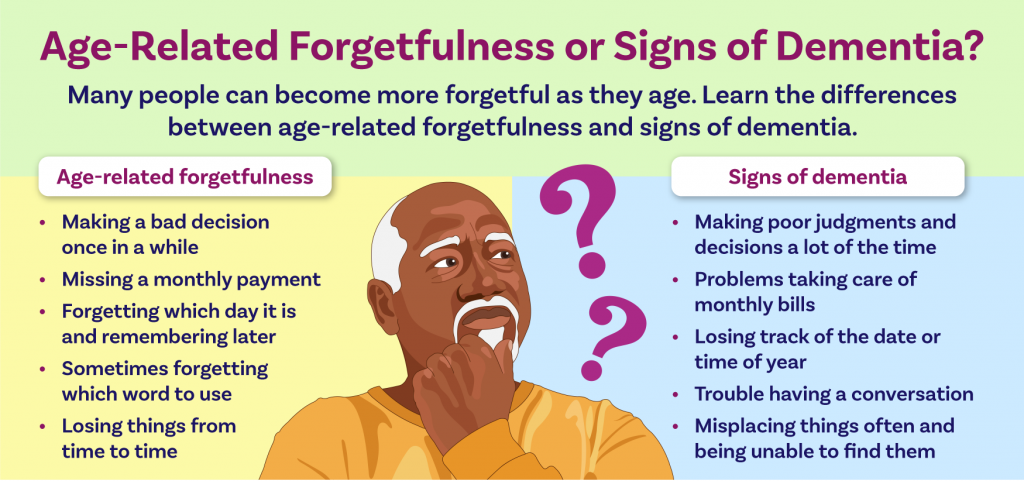
Brain Fog Causes, Symptoms, and Treatments


“I feel I’m just getting by on autopilot. I feel delayed with my actions and reactions to questions and situations.”
“It’s almost identical to what I go through when I’m awakened from a dream–just total bewilderment and almost complete inability to process anything that’s going on.”
“Sometimes I am very far off. I’ll pause and get confused in the middle of doing things. I’m drowsy all the time and just don’t know what’s going on.”
“I feel heavy on the front of my head, unrefreshed, similar to a hangover or jet lag.”
“I feel like Dory in Finding Nemo.”
If any of these sound familiar, then you know what “brain fog” feels like. Brain fog is a symptom, not a diagnosis or disease. It leaves a person temporarily unable to concentrate or think clearly.

Not all brain fog is created equally: Anything from stress to dehydration to a urinary tract infection (UTI) can cause mild, temporary brain fog. COVID-19 has contributed to a particular kind of brain fog seen in “long-haul” COVID cases. Fibromyalgia patients often complain of “fibro fog” and cancer patients undergoing chemotherapy can experience “chemo brain.” Regardless of the cause, the forecast for the brain remains the same: foggy, forgetful, and fuzzy around the edges.
Fortunately, new treatments, such as the Aviv Medical Program, which can include the world’s most advanced hyperbaric oxygen therapy (HBOT) protocol, may offer relief from brain fog. Understanding brain fog symptoms and causes can help you take charge of this challenging cognitive condition.
What Is Brain Fog?
Brain fog describes a feeling of confusion and forgetfulness, as well as a lack of mental focus. The effects of brain fog can range from mildly annoying to completely debilitating. It can last hours, days, or even weeks, depending on the root cause of the brain fog.

What Symptoms Accompany Brain Fog?
Brain fog can encompass a combination of cognitive and emotional symptoms. A person with cognitive symptoms usually has difficulties with attention, concentration, learning, and memory. This can manifest differently across individuals, but often looks like:
- Struggling with multitasking
- Feeling like you’re in a dream or disconnected from reality
- Forgetting details of a recent conversation
- Having a hard time concentrating and absorbing information
- Being easily distracted
Brain fog can also make you feel emotionally unwell. After all, not being able to put your best foot forward in daily activities can be discouraging.
You might:
- Feel frustrated and helpless
- Experience irritability or mood swings
- Feel more stressed than usual
During these difficult moments, it’s important to be kind to yourself. We’re humans, not robots. Understanding that these feelings might be linked to a medical condition is the first step to regaining optimal cognitive and mental health.

How Does Brain Fog Impact Daily Life?
Most of the time, it feels like we’re in control of our lives, and we want it to stay that way. But with brain fog, that journey grows complex. While it’s easy to brush it off, hoping “it will subside in no time,” the reality is that the brain doesn’t just impact your emotional well-being—it also impacts the circumstances and individuals surrounding you.
- Professional challenges: When we spend “one third” of our lives at work, brain fog can surely creep into the professional realm. Getting tasks done on time or staying attentive during training and meetings feels harder than usual.
- Strained personal relationships and social interactions: Building and maintaining genuine connections with loved ones requires equal investment on both sides. Brain fog can cause an imbalance, making it difficult to keep up with social interactions and stay fully invested in relationships.
- Decline in emotional well-being: Living with brain fog can become emotionally and cognitively draining. Knowing you’re not your best self can make you feel detached from your surroundings. As this starts to impact your performance and relationships, daily activities may grow even more overwhelming.
- Safety risks and implications in daily activities: Since brain fog may make you less attentive than usual, it can expose you to unsafe situations. Examples include making less careful decisions and not watching where you’re going.

One way to take back control of your life is by learning brain fog causes. Doing so will help you understand yourself better and, more importantly, give you the strength, expertise, and courage to pursue the right solutions.
What Causes Brain Fog?
Brain fog isn’t a specific medical diagnosis but a side effect of lifestyle factors and emotional or medical conditions.
The common reasons why your brain feels foggy might include:
- Stress—Stress impacts the entire body, inclufing and especially the brain. When stress becomes chronic, high cortisol levels can negatively affect the brain, inhibiting it from optimal function.
- Lack of sleep—Another obvious but often overlooked cause of brain fog is lack of sleep. Sleep deprivation causes “cognitive lapses.” Brain cells have difficulty communicating with one another, resulting in a lack of focus or clarity. More severe sleep issues, such as sleep apnea, can also cause brain fog and cognitive decline.
- Hormones—Menopause is known for wreaking havoc on the brain. Menopausal and postmenopausal women were reported to “show gradual declines in cognitive performance.” The drop in estrogen levels can trigger memory and concentration issues. Hormonal changes are also known to exacerbate sleep deprivation, which may contribute to brain fog. Learn more about menopause and brain health.
- Diet—When your brain isn’t provided with quality nutrition, it doesn’t have the fuel it needs to function optimally. Harvard Health notes there is a link between “a diet high in refined sugars and impaired brain function.”
- Medications—Medications, especially psychiatric drugs and antibiotics, can “affect memory and cognitive function.” This impact on brain performance is especially common in older adults whose metabolic processes are slower, making them more sensitive to medications.
- Mental health disorders—Disorders like depression can “reduce cognitive functions,” which may cause brain fog. An individual may feel fatigued, dissociated, and hopeless.
- Long COVID—The CDC lists brain fog as one of long COVID’s neurological symptoms. COVID-19 can attack the brain in ways that may cause post-COVID brain fog. If your cognition has not been the same since your COVID-19 infection, we recommend speaking with a physician.
- Environmental toxins—Exposure to chronic “traffic-related pollutants may increase the risk of neurological disorders.” Additional research notes that “exposure to environmental toxins, such as cigarette smoke, polluted air, and pesticides, can negatively impact brain health, leading to cognitive decline and an increased risk of neurodegenerative diseases.”

What Chronic Conditions Cause Frequent Brain Fog?
People who have myalgic encephalitis, chronic fatigue syndrome (ME/CFS), or fibromyalgia often experience brain fog.
In fact, the term may have originally come from “fibro fog,” which sufferers of fibromyalgia have used to describe their frequent cognitive challenges. Chemotherapy patients may also be familiar with “chemo brain,” which refers to the fogginess caused by chemotherapy treatment.
Other medical conditions that sometimes feature cognitive dysfunction include:
- High blood pressure
- Depression
- Anemia
- Thyroid disorders
- Autoimmune diseases
- Diabetes
When Should You Be Worried About Brain Fog?
Your brain fog may be cause for concern when memory problems and other cognitive issues interfere with normal functioning. People with mild cognitive decline and/or early stages of dementia may find they have difficulty completing simple, everyday tasks like paying bills.
As we age, some amount of cognitive decline is natural, due to age-related changes in the brain.
This infographic from the National Institute on Aging details some common differences between normal aging and signs of serious memory loss.

Brain Fog and COVID-19
Experiencing brain fog long after recovering from COVID-19 is common. As Aviv Clinics’ physician Dr. Mohammed Elamir, MD, FACP, explains, there is a link between where the COVID-19 virus attacks the brain and how that impacted location affects long COVID symptoms.
If you’ve had COVID-19 and haven’t felt the same since, reach out to a trusted physician.
Your physician may ask about:
- Your current physical activity levels
- Medications or supplements you’re taking
- Possible nutritional deficiencies
- Possible infections and inflammatory diseases/conditions
- A timeline of symptoms
- How symptoms have changed over time
Your doctor may also request a blood test, Electroencephalogram (EEG), CT scan, or advanced MRI.
What Can You Do to Fight Brain Fog?
When your head feels heavy and foggy, this may be a sign that your body isn’t operating at peak performance, much like when you get sick with a cold or flu. The brain needs constant oxygen, the right supply of nutrients, and rest to function well.
When we fall short in one area of health, it’s easy to spiral out of control. Looking at the list of causes for brain fog, the cycle becomes clear: lack of sleep can lead to stress, which can lead to poor diet, and so on.
Often, the key to managing brain fog lies in good self-care. To ensure general health and wellness, try to:
- Manage stress—Many people find yoga and meditation helpful in dealing with stress. Counseling can also help you find customized coping mechanisms and an opportunity to chat about concerns with a trusted mental health professional.
- Eat a variety of healthy foods—Maintain a diet rich in vitamins and nutrients. Intermittent fasting, an eating regimen that alternates between eating and fasting, can help optimize brain function and sharpen the mind.
- Nutritional supplements—Specific nutrients may help combat brain fog. For example, vitamin D may help some of those suffering from symptoms linked to brain fog, such as fatigue and depression. Review your dietary intake with a medical professional or dietitian; consider filling in any nutritional gaps with supplements.
- Get enough sleep—What qualifies as a “good night’s rest” varies from person to person, so figure out what is right for you and stick to it. Sleep helps the body “cleanse your brain of toxins and waste,” helping you achieve a healthy brain.
- Maintain physical activity—Exercise has proven benefits for the brain. Start with 30 minutes per session, three days per week. Sticking with a physical activity you genuinely enjoy can help you stay committed to a routine.
- Drink enough water every day—Some cases of brain fog are due to simple dehydration. While fluid needs vary, the general rule of thumb is “15.5 cups” for men and “11.5 cups” for women daily.
- Challenge the brain with games, puzzles, or novel experiences—Just as our body needs to exercise to remain strong, our brains need exercise to perform at optimal levels. As we age, the brain loses neurons, often making brain fog more frequent. Cognitive training via brain games can improve memory and reasoning.
Diagnosis and Potential Therapies
If your circumstances merit additional assistance, there are medical interventions and therapies to pursue. What you select depends on the root cause of your brain fog. So we encourage you to take the time to speak with a physician to diagnose your situation and discuss options.
Diagnosis – Your physician may carry out one or a combination of the following clinical assessments to diagnose your case:
- Cognitive function tests
- Blood tests
- Neurological exams
Potential Therapies – Your physician may suggest therapies such as:
- Hormonal replacement therapy: Brain fog due to hormonal imbalances may require hormonal treatments. This treatment intends to balance your hormonal levels due to conditions such as menopause and helps improve brain fog symptoms.
- Cognitive behavioral therapy and counseling: Psychotherapeutic approaches such as cognitive behavioral therapy (CBT) help individuals cope with brain fog symptoms and gain a healthier perspective. CBT may also work on strengthening your cognitive function through brain exercises.
- Herbal supplements and nootropics for cognitive enhancement: Herbal supplements may be recommended for nutritional gaps. Nootropics such as L-theanine are known to provide a “boost of mental clarity and enhance your ability to focus.”
- Acupuncture and traditional Chinese medicine: For some, acupuncture and traditional Chinese medicine can alleviate brain fog and memory and concentration issues by increasing blood circulation.
- Pharmacological treatments for underlying medical conditions: If an underlying medical condition is causing your brain fog, your medical provider may prescribe medication to target the root cause. Over time, depending on how effective the medication is, you may experience improvement in brain fog symptoms.
- Hyperbaric Oxygen Therapy: In a randomized, controlled scientific study, a specialized hyperbaric oxygen therapy protocol was found to improve “global cognitive function, attention and executive function,” including brain fog, in patients suffering from long COVID.
The Aviv Medical Program Can Include the World’s Most Advanced Hyperbaric Oxygen Therapy (HBOT)
Identifying a long-term solution that looks after your health and happiness is essential. One long-term solution that has restored hope for many of our clients is a unique medical program offered exclusively at Aviv Clinics in central Florida.
Our effective treatment plan for cognitive dysfunction, including brain fog, may involve the world’s most advanced hyperbaric oxygen therapy (HBOT) in combination with cognitive, nutritional, and physiological therapies. This allows our clinical team to provide a customized approach uniquely tailored to your needs.
Aviv Clinics’ evidence-based treatment protocol helps enhance brain performance and reduce brain fog for many conditions like aging, traumatic brain injuries, fibromyalgia, post-stroke, long Covid, Lyme disease, and mild cognitive impairment.
Based on nearly two decades of research and development, the Aviv Medical Program is customized to your needs. Aviv Clinics in central Florida is the only center in the United States to offer this state-of-the-art program. Clients who choose our clinic can benefit from a personalized and comprehensive treatment approach.
Carl & Vickie Eckert
“Our quality of life was not what it should have been.”
Having parents who endured their fair share of cognitive issues, Carl and Vickie Eckert were alert to experiencing cognitive decline themselves. They were beginning to lose confidence in tackling their daily activities and knew it was time to make a change.
Fortunately, they discovered Aviv Clinics’ program, and today, they are happy to report that they are active, healthy, and enjoying all that Florida retirement has to offer.
Defy Limitations: Achieve Optimal Cognitive Health with Aviv Clinics
For more guidance on managing brain fog and cognitive health, contact Aviv Clinics. Our diverse medical team will happily provide the personalized care you need to get back on track.
Last update: July 1, 2025
Aviv Medical Program provides you with a unique opportunity to invest in your health while you age





